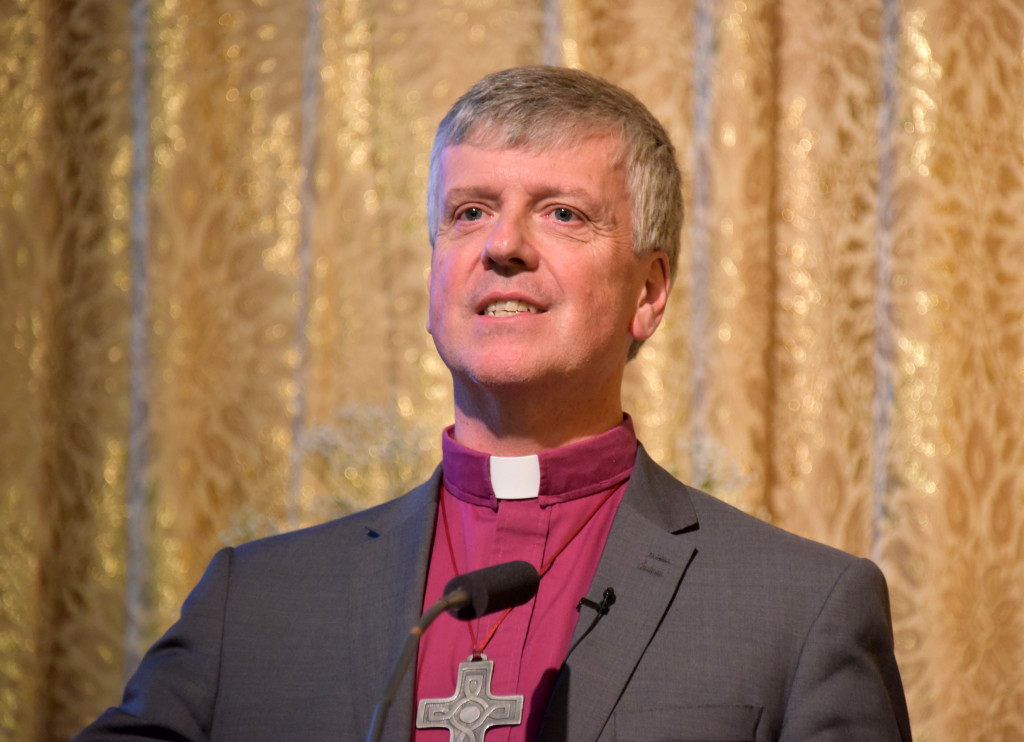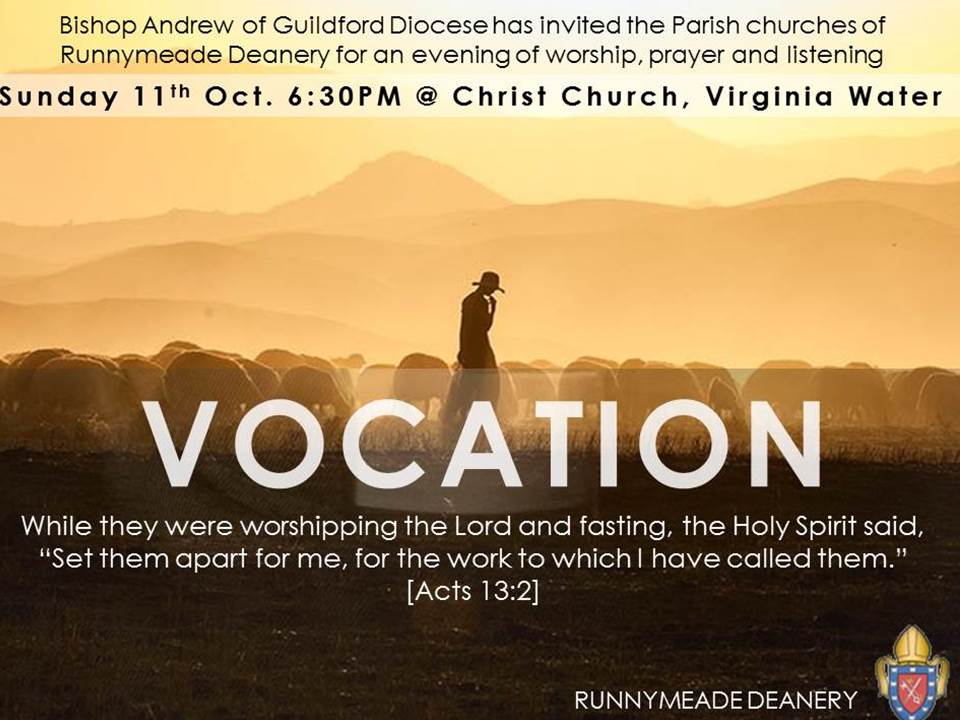 If you have travelled abroad on holiday or for work, you will no doubt have observed a variety of places of worship. Synagogues, mosques, temples, shrines, churches, chapels, cathedrals. Some permanent, some temporary. Some very ancient, some modern. Some ornate and some very simple. And within them, if you have ventured inside, you might have seen Muslims prostrating, Shia’s lamenting, Buddhists meditating, Voodoos dancing, Shintos chanting, Hindus sacrificing, Zoroastrians lighting fires, Jews rocking, Sufis whirling, Shakers… shaking, Catholics kneeling, Mystics contemplating, Pentecostals slaying, and Anglicans doing everything, decently and in order. Colourful, vibrant, diverse. Worship is universal.
If you have travelled abroad on holiday or for work, you will no doubt have observed a variety of places of worship. Synagogues, mosques, temples, shrines, churches, chapels, cathedrals. Some permanent, some temporary. Some very ancient, some modern. Some ornate and some very simple. And within them, if you have ventured inside, you might have seen Muslims prostrating, Shia’s lamenting, Buddhists meditating, Voodoos dancing, Shintos chanting, Hindus sacrificing, Zoroastrians lighting fires, Jews rocking, Sufis whirling, Shakers… shaking, Catholics kneeling, Mystics contemplating, Pentecostals slaying, and Anglicans doing everything, decently and in order. Colourful, vibrant, diverse. Worship is universal.
Category Archives: Anglicanism
The Bible on Singleness, Marriage and Homosexuality
 The Primates of the Anglican Communion met in Canterbury in January to reflect and pray together concerning the future of the Communion. The majority of those gathered reaffirmed that “The traditional doctrine of the church in view of the teaching of Scripture, upholds marriage as between a man and a woman in faithful, lifelong union.” A small minority of Anglican Primates were however, unable to do so. This in itself has serious implications, for what divides them is the question of ultimate authority in matters of faith and doctrine. Does it lie with church tradition, with experience, reason, secular cultural norms, or with the Scriptures? Our presuppositions inevitably shape our thinking. Here are five assumed in this paper.
The Primates of the Anglican Communion met in Canterbury in January to reflect and pray together concerning the future of the Communion. The majority of those gathered reaffirmed that “The traditional doctrine of the church in view of the teaching of Scripture, upholds marriage as between a man and a woman in faithful, lifelong union.” A small minority of Anglican Primates were however, unable to do so. This in itself has serious implications, for what divides them is the question of ultimate authority in matters of faith and doctrine. Does it lie with church tradition, with experience, reason, secular cultural norms, or with the Scriptures? Our presuppositions inevitably shape our thinking. Here are five assumed in this paper.
Article 6 of the Church of England
“Holy Scripture containeth all things necessary to salvation: so that whatsoever is not read therein, nor may be proved thereby, is not to be required of any man, that it should be believed an article of the Faith, or be thought requisite or necessary to salvation.”
The Scriptures are God-breathed
“All Scripture is God-breathed and is useful for teaching, rebuking, correcting and training in righteousness, so that all God’s people may be thoroughly equipped for every good work.” (2 Timothy 3:16-17). Ann Atkins has observed, “Scripture is not important enlightenment about God, but infallible revelation from Him. So we interpret our lives in the light of scripture, instead of the other way about.” Continue reading
Jesus the Unwelcome Prophet
 Which ethnic community in the UK suffers the most abuse do you think? Nine out of 10 children from this community have suffered racial abuse, and two thirds have also been bullied or physically attacked and are scared to go to school. How do you feel about that? Which community are we talking about? Friday’s Guardian ran a report entitled, “It’s time to end ‘the last acceptable racism’ – against Gypsies and Travellers” How do you feel now you know? Shocked or not surprised?
Which ethnic community in the UK suffers the most abuse do you think? Nine out of 10 children from this community have suffered racial abuse, and two thirds have also been bullied or physically attacked and are scared to go to school. How do you feel about that? Which community are we talking about? Friday’s Guardian ran a report entitled, “It’s time to end ‘the last acceptable racism’ – against Gypsies and Travellers” How do you feel now you know? Shocked or not surprised?
Having been bullied at secondary school myself I have a low tolerance of bullying when I witness it – and intervening gets me into trouble sometimes. And having helped raise three lovely daughters, I have a low tolerance of discrimination against women as well. Our common imago dei – that is – that we are created in the image and likeness of God means that it is sub-Christian to mistreat, abuse, or denigrate any person, irrespective of their race, colour, age, religion, gender or sexual orientation. Let me repeat that.
That is why I am glad the final Communique of the Anglican Primates meeting in Canterbury last week, spoke compassionately about another group who suffer abuse.
“The Primates recognise that the Christian church and within it the Anglican Communion have often acted in a way towards people on the basis of their sexual orientation that has caused deep hurt. Where this has happened they express their profound sorrow and affirm again that God’s love for every human being is the same, regardless of their sexuality, and that the church should never by its actions give any other impression.”
Do we worship the same God?
 Wheaton College is probably the best known Evangelical college in the USA. And last month, Larycia Hawkins who taught political science at Wheaton, became their best known professor. She had pledged to wear a hijab during Advent in support of her Muslim neighbours. But she was suspended after she wrote on Facebook, “I stand in religious solidarity with Muslims because they, like me, a Christian, are people of the book. And as Pope Francis stated last week, we worship the same God.” “This statement is unbelievable,” tweeted Baptist blogger Denny Burk, professor of biblical studies at Boyce College in Louisville. “Really jaw-dropping.” Many others criticized Larycia. “A holy kiss to you who disavow the idea that Muslims & Christians worship the same God: I love you. Peace & respect,” Hawkins tweeted in response to her critics. She linked to her Facebook response, where she stated:
Wheaton College is probably the best known Evangelical college in the USA. And last month, Larycia Hawkins who taught political science at Wheaton, became their best known professor. She had pledged to wear a hijab during Advent in support of her Muslim neighbours. But she was suspended after she wrote on Facebook, “I stand in religious solidarity with Muslims because they, like me, a Christian, are people of the book. And as Pope Francis stated last week, we worship the same God.” “This statement is unbelievable,” tweeted Baptist blogger Denny Burk, professor of biblical studies at Boyce College in Louisville. “Really jaw-dropping.” Many others criticized Larycia. “A holy kiss to you who disavow the idea that Muslims & Christians worship the same God: I love you. Peace & respect,” Hawkins tweeted in response to her critics. She linked to her Facebook response, where she stated:
“Whether or not you find this position, one held for centuries by countless Christians (church fathers, saints, and regular Christian folk like me), to be valid, I trust that we can peacefully disagree on theological points and affirm others like the Triune God , the virgin birth and the Resurrection. Let there be unity in our diversity of views about all of the above.”
Wheaton have instituted dismissal proceedings against Larycia. Other Wheaton faculty have defended her.
Jesus, Mean and Wild: Good Warnings
Read the sermon text here
The Rev. Canon Francis Omondi on Al-Shabaab in East Africa
Rev. Canon Francis Omondi gave a presentation about the persecution of Christians in East Africa and the pressures they face there from Al-Shabaab at Christ Church, Virginia Water. Canon Omondi was participating in a tour of churches in the UK, as part of Suffering Church Week. The Revd Canon Francis Omondi is the founder and International Director of Sheepfold Ministries, he is chair of CMS Africa and Barnabas Fund in Africa.
Jesus, Mean and Wild: Good Warnings
 A husband was distraught over his wife’s stubborn refusal to admit she had a hearing problem. He went to see their family doctor to ask for advice on how to convince his wife that she had a hearing problem. The doctor advised him to go home, open the front door and in a normal voice ask his wife what’s for dinner. The doctor said, if she doesn’t answer, move closer to the kitchen. Repeat the question again, and if she still doesn’t answer, stand behind her and whisper in her ear, “What’s for dinner, honey?” Then, the doctor assured him, she’ll have to admit she has the problem. So the man went home, opened the front door and asked “What’s for dinner, honey?” His wife made no reply, so he moved closer to the kitchen and asked again. “What’s for dinner, honey?” Again, nothing. So he tiptoed over to her and whispered in her ear, “What’s for dinner, honey?” She turned and looked at him straight in the eye: “For the 3rd time, I said, we’re having MEAT LOAF!”
A husband was distraught over his wife’s stubborn refusal to admit she had a hearing problem. He went to see their family doctor to ask for advice on how to convince his wife that she had a hearing problem. The doctor advised him to go home, open the front door and in a normal voice ask his wife what’s for dinner. The doctor said, if she doesn’t answer, move closer to the kitchen. Repeat the question again, and if she still doesn’t answer, stand behind her and whisper in her ear, “What’s for dinner, honey?” Then, the doctor assured him, she’ll have to admit she has the problem. So the man went home, opened the front door and asked “What’s for dinner, honey?” His wife made no reply, so he moved closer to the kitchen and asked again. “What’s for dinner, honey?” Again, nothing. So he tiptoed over to her and whispered in her ear, “What’s for dinner, honey?” She turned and looked at him straight in the eye: “For the 3rd time, I said, we’re having MEAT LOAF!”
Jesus said, “Whoever has ears to hear, let them hear.” (Mark 4:9). Clearly those who cannot hear do not get it, and those who can hear, should. What did you hear when this well known parable of Jesus was read just now? I suggest the majority of us think we are like the good soil. We are sorry for others whose hearts are like the rocky, weedy or hard soil.
Lets be honest: Is that what you thought? That is because when the Scriptures are read, we invariably see ourselves in the best possible light, we tick the box and move on to the next passage. This is a very serious mistake. When Jesus said, “Whoever has ears to hear, let them hear.” (Mark 4:9) he was giving a warning. That is the main point of the parable.
The Right Rev Andrew Watson on “Hearing God’s Call”
A sermon preached on 1 Samuel 17 at Christ Church, Virginia Water, Sunday 12th October 2015 during a special Deanery service on the theme of Christian Vocation.
See more photos here
Troubled But Not Destroyed: Archbishop Giatri’s Autobiography
See photos taken at the Lambeth Palace book launch here
Bishop Andrew Watson on Regeneration
View photos of Bishop Andrew’s visit here


